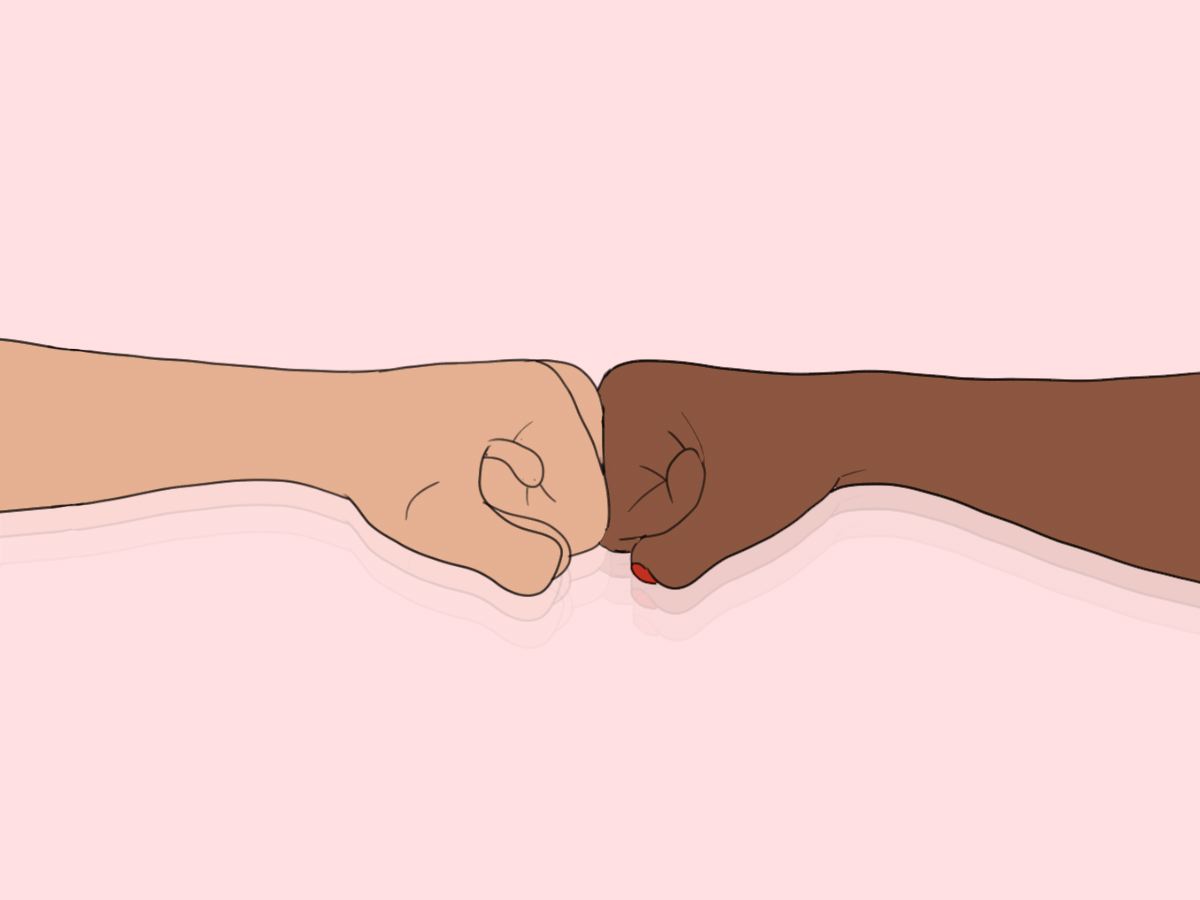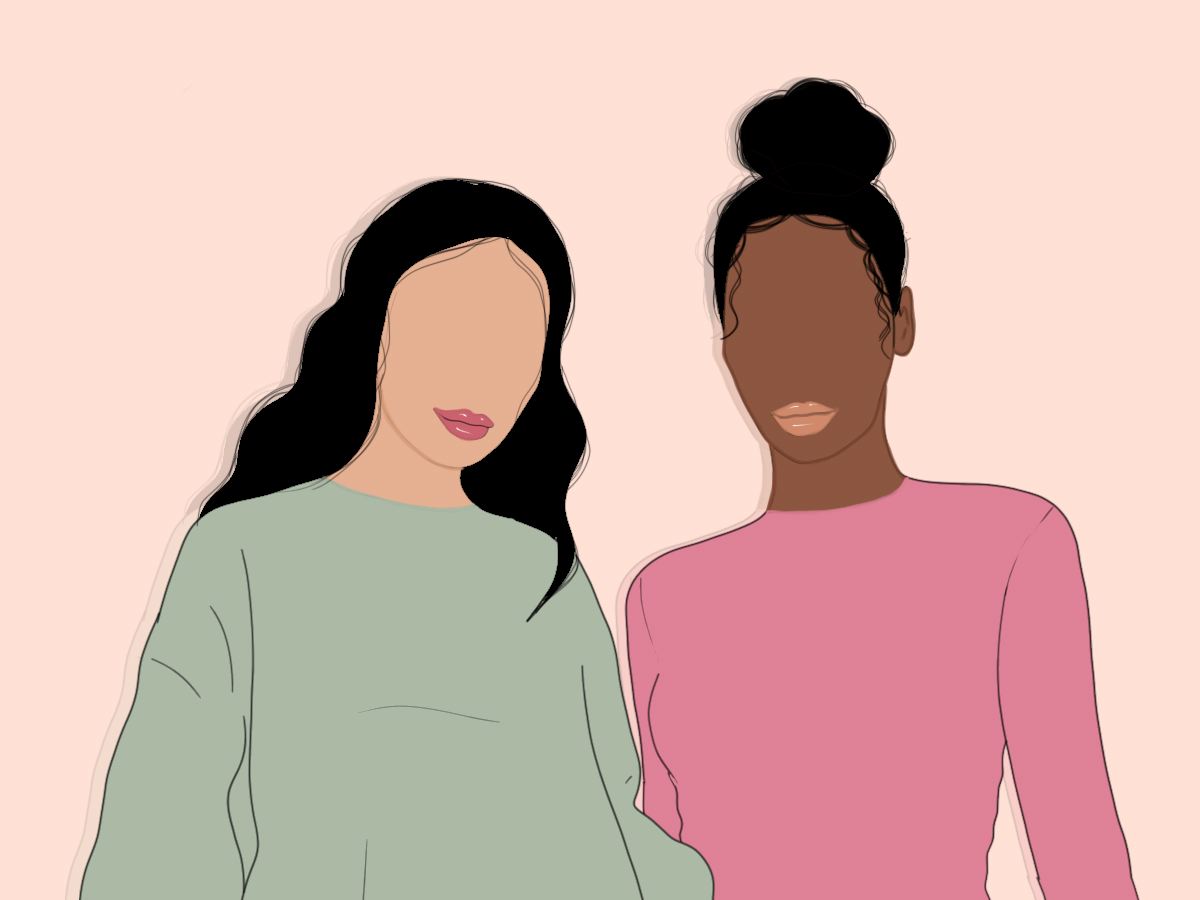We entered 2021 with the hopes that things would improve, but with the bitter reality of a pandemic worsening at home, political unrest continuing globally and politicians often putting issues of race on the backburner, it is important that as the social media hype dies down we continue to support the Black community in whatever ways we can, including facing our own privilege through things such as the model minority myth.
The goal of this piece is to act as a starting point for non-Black people of colour (POC) to explore how to improve their allyship. As an ethnically Chinese and British-born POC, I found that much of the discourse around becoming anti-racist was aimed towards white people. Given the complicated spectrum of privilege and oppression, it is important to acknowledge the different work that needs to be done by different people with different backgrounds. I hope this helps someone else feeling lost about their place in this conversation.
(It is important to note that I will be speaking from my point of view as a British-born Chinese POC. Therefore, a lot of this will not be directly applicable to all non-Black POC. However, I hope that my findings and experience will help someone who has been thinking along these lines.)
Education
The first step in any journey like this begins with examining your current beliefs, attitudes and those of your communities and identifying where your anti-Black beliefs may lie in order to move forward and improve.
The racist UK
A lot of people seem to view the UK favourably in comparison to the United States, claiming that ‘we aren’t perfect but at least we aren’t as bad as the US’. For a multitude of reasons, it has become easier for people to look at tragedies like the murders of George Floyd, Breonna Taylor and Tony McDade in the US and condemn them without recognising the issues at home. However, with stop and search rates for Black people being nine times higher than for white people (contributing to a far higher arrest rate), white British children being three times as likely to achieve high grades as Black Caribbean students at A-level and Black people seeing double the unemployment levels of white people, it feels ridiculous to deny racism in this country, regardless of any miscalculated comparison with the US or anywhere else.
The British education system has failed us in so many ways, not least in the fact that so many of us have written essays on the American Civil War and Martin Luther King Jr, but do not know who Mark Duggan or Paul Stephenson were. On some level it is not our fault that we can name more of Henry VIII’s wives than Black British activists, but it is our fault if we continue what is a violent ignorance that is costing Black lives.
Racism within your cultural communities
One huge part of self-education is to acknowledge and actively fight the anti-Black sentiment in your cultural community. As a Chinese-heritage POC, it is undeniable from many peoples’ experiences of the Chinese community that there is deep-rooted anti-Black sentiment. In 2016, a Chinese laundry detergent commercial by Qiaobi showed a Black man being ‘washed’ into becoming a Chinese man. Later in 2018, a segment of the annual Spring Festival Gala, watched by over 800 million people, reminded us of how acceptable anti-Black racism is in China, with a non-Black actress in blackface and a Black actor playing a monkey. While the segment purportedly celebrated China-Africa relations, this perpetuation of racist tropes and the consequent removal of any criticism from Chinese websites is a worrying symptom of deep-rooted racist beliefs that are not being addressed.
China is, of course, not alone in its shortcomings. Anti-blackness is also common across the Asian diaspora, with examples ranging from the death of Latasha Harlins by Korean-American store owner Soon Ja Du over a bottle of orange juice, to the now infamous Hmong-American police officer, Tou Thao, who stood guard while Derek Chauvin murdered George Floyd. Every non-Black POC needs to be aware of the historical and social context of their own racism in order to avoid feeding into harmful narratives further, as well as reshaping and improving them in the process.
The model minority myth: Acknowledging your privilege
While, of course, non-Black POC experience oppression due to their race, we are not only ourselves capable of racism towards Black POC but in some cases we benefit from anti-Black sentiment. For people who are part of the Asian diaspora, one way we can benefit is in the perpetuation of the model minority myth. The use of this term began in the United States in an attempt to denigrate African Americans during the Civil Rights movement and drive a wedge between African Americans and Chinese Americans. Stereotypes of Asians, particularly Chinese POC, went from being associated with opium addiction, prostitution and gambling to being ‘law-abiding, peace-loving and courteous people’, giving further life to the idea playing into the constructed ideal that any non-white Americans can be academically and financially successful, with enough effort, thereby creating the illusion of a level playing field and consequently giving a free-pass to racist institutions.
It is true that the model minority myth is bad for the model minority. However, we do also benefit, as if you follow the rules set out by the myth you can find yourself at elite institutions. At Google 48.5% of the workforce is Asian and only 5.5% is Black; similarly at LinkedIn, 40.3% of the company is Asian and only 3.5% is Black. In creating this narrative of an ‘acceptable’ model minority stereotype, employers and other upholders of racist systems can point to POC in their midst and claim they are not racist while still discriminating against Black people, and forcing the ‘model ethnic minority’ group to behave in a way that is deemed acceptable to the status quo and punishes deviation.
Consequently, the model minority myth is used to pit Black and Asian POC against each other. The example of Asian success is supposed proof of a failure intrinsic within the Black community while simultaneously encouraging Asian POC to ignore issues of racism in favour of upholding a system which, while not wholly beneficial, still elevates them above others.
This comparison between groups is fundamentally flawed in its suggestion that you can make sweeping comparison of all non-White POC, claiming that Asian communities have put in the same work as Black communities have had to to overcome centuries of enslavement and displacement. In pitting different ethnic and racial minorities against each other they uphold their own power systems. It also assumes all Asian POC face the same hurdles, which is obviously not true due to huge differences in cultural and socio-economic factors between communities and individuals with their own personal experiences.
In working against this, it is important that those who benefit from the model minority myth ensure not only that there are Black voices in the circles they move in, but also that Black voices are taken seriously. It is important to acknowledge, where appropriate, the differences in experiences of different POC and not allow White people in your life to make sweeping generalisations about POC, or use you and your race to diminish the experiences of Black POC.
Further education
Of course, we must try to continually educate and improve ourselves. Here are some general resources I found helpful that cover lots of different ways to educate yourself:
- Anti-Racism Resources Compiled By Sarah Sophie Flicker and Alyssa Klein
- GoodGoodGood Antiracism Resources
- The Black History Month online library
Decenter yourself and amplify Black voices

Where appropriate, learn to recognise where it is and is not your place to speak on an issue. When it is not, amplify the Black voices around you who are speaking up. You can leverage your privilege to amplify Black voices, which means inviting Black speakers to events or demanding that they be present at events you are attending/organising, referring Black writers/creators for jobs about Black voices, sharing and liking posts from Black users and activists on social media or simply not letting the Black people around you get spoken over, be it in a social conversation or at work.
Stand up for the Black people and communities around you
When the situation calls for it, whether with family, at work, or in other settings where either a Black person is not present or they are not comfortable calling out anti-Black beliefs and behaviours, you need to have hard conversations with people. As non-Black POC, it is sometimes on us to do the emotional labour, where we are safe to, and help other people in our communities realise the entrenched wrongs that we perpetuate and the false beliefs we hold.
Donate to charities, redistribute wealth and/or support Black-owned businesses.
Where you can, it is important to integrate Black-owned businesses into your everyday life. Find businesses whose products you love and become a regular customer to continue to support Black people in your day-to-day. Similarly, set up recurring donations. After a surge of support it is likely that many Black people-focused charities are seeing a let-up in donations. It is more important that this remain consistent so don’t start absurdly high and make sure it stays at a manageable amount.
Something that social media has successfully allowed for is the donation to Black individuals who need help, with various Instagram accounts that post about people who need help with rent or childcare or otherwise, and then their payment details. For many this kind of direct redistribution feels the most rewarding because you know the impact you are having is immediate. On top of this, to support Black businesses and ventures online, be sure to follow pages, save, like and share posts in order to boost their views by using social media algorithms to their advantage without spending anything!
Helpful links:
- @sarahmian’s list of 100 Black-owned businesses
- @nkrystal_’a list of Black and womxn owned businesses
- 50 great books by Black authors that are not tools for you to be less racist
- Annika Hansteen-Izora’s list of 14 Black funds and 23 creative ecosystems to support centering Black queer, trans and non-binary folk and Black womxn
- 20 Black LGBTQ+ organisations and funds to support
- @emames7’s list of UK Black-owned businesses
- Cambridge SU (through @cambridgebme) have compiled an incredibly useful list here with links to petitions and open letters, templates for emails you can send and fundraisers to donate to and groups to support.
- @blackwomxnexhale post regularly about US-based Black womxn who urgently need help
Avoid burnout
Finding a way to show up that is sustainable and has longevity, and makes sense for you is the most important thing. As daunting as it sounds, long-lasting change means a change for life. But that is what is required to dismantle racism and anti-Blackness within yourself and your communities. You will make mistakes and say and do the wrong thing and you will do this often. But that is alright, as long as you apologise fully without centering yourself and figure out where you went wrong.
Do not expect Black people to educate you or explain things to you if they do not want to, but find resources to help you understand and carry the lesson on with you into the future. It is more important that you learn from your mistake than get forgiveness for any particular error, because this is not about you as an individual feeling less guilty, but about supporting wider liberation.
I don’t doubt that I have missed important actions off this list, but hopefully this acts as a helpful part of someone’s journey to figuring out how to be a better ally to Black POC.
Find more lifestyle articles here >
Written by Yuying Zhu
Illustrated by Francesca Mariama

